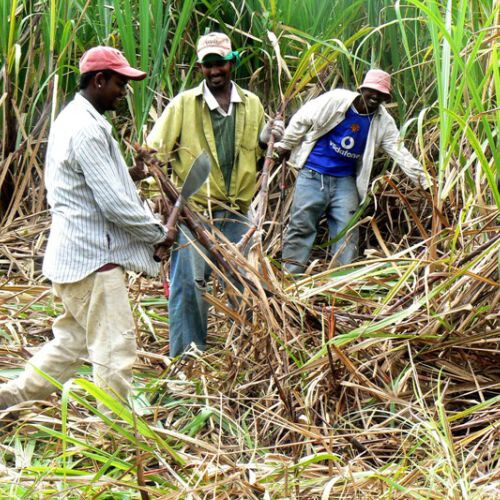
Kathmandu, Nepal – Sugarcane farmers in Nepal are facing a persistent issue of unpaid dues and low support prices, despite government interventions.
The government recently fixed the minimum support price for sugarcane at Rs 585 per quintal, a Rs 20 increase from the previous year. However, farmers argue that they are often forced to accept lower prices from sugar mills.
Ashok Prasad Yadav, a farmer from Rautahat, criticized the government's lack of enforcement. "The government fixes the minimum support price annually, but sugar mills often disregard it," he said. "Last year, the government set the price at Rs 565, but Baba Baijunath Sugar and Chemical Industries paid only Rs 540."
The non-payment issue has been a long-standing problem, leading to financial hardship for farmers and a decline in sugarcane cultivation. Shree Ram Sugar Mill, for instance, shut down in 2020 due to unpaid dues.
Farmers in Rautahat, a major sugarcane-producing district, are owed over Rs 40 million by Baba Baijunath. The government's inaction has fueled speculation of collusion between the government and sugar mills.
The declining profitability of sugarcane farming has prompted many farmers to switch to other crops. Yadav, who once cultivated sugarcane on 15 bighas of land, has reduced his cultivation by a third. He cited rising costs of fuel, labor, and fertilizers as additional factors.
Kapil Muni Mainali, president of the Federation of Sugarcane Producers Association, emphasized the need for a more realistic support price that accounts for production costs. He criticized the government for favoring sugar producers in its policies.
The government's cash subsidy scheme, introduced in 2018, has proven insufficient to address the farmers' concerns. The declining sugarcane production has impacted Nepal's sugar self-sufficiency, leading to increased imports to meet the country's annual demand of 270,000 tonnes.
As sugarcane farmers continue to struggle with unpaid dues and low prices, the future of Nepal's sugar industry remains uncertain.
[Copyright (c) Global Economic Times. All Rights Reserved.]




























